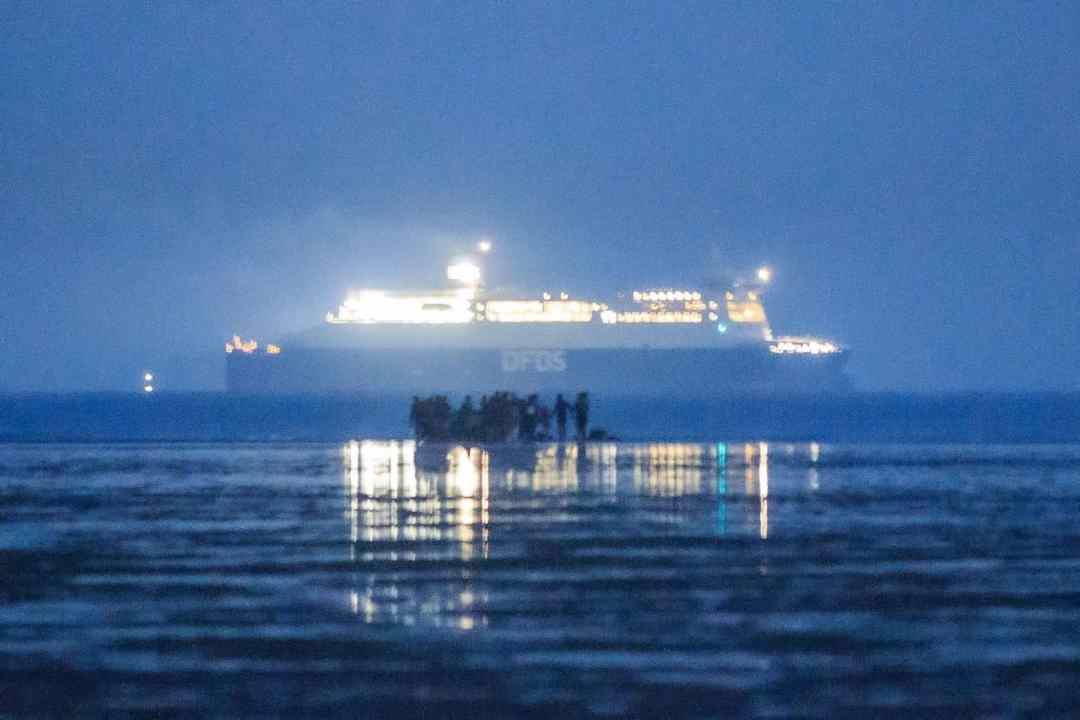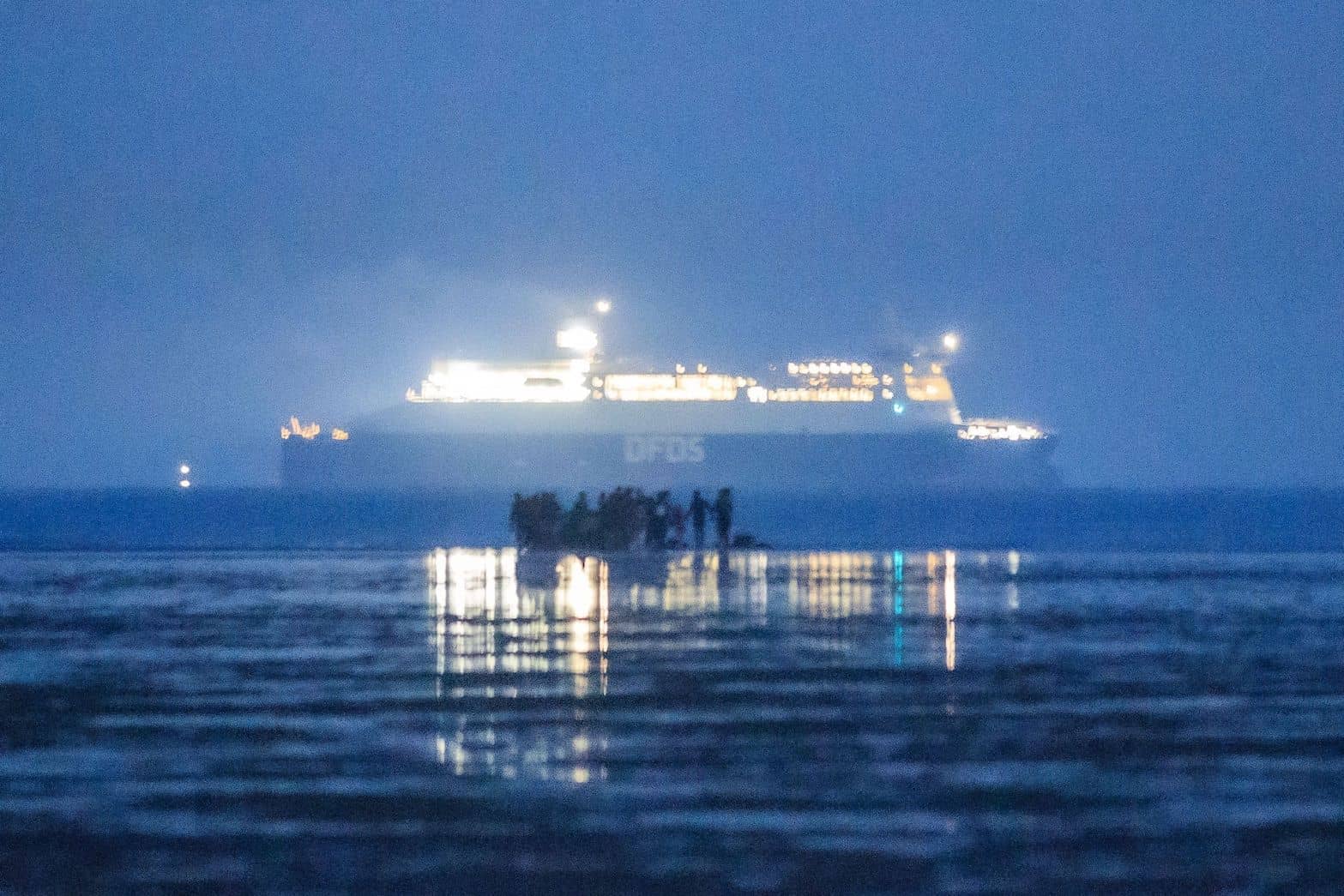British prime ministers like to deploy the armed services in civilian life because doing so is one of the few levers they can pull that seems to be attached to something that makes an actual difference. While billions extra can be thrown at the NHS with no discernible change or poured into failing public services which go on to fail again in just the same way, calling in the British Army, Royal Air Force or Royal Navy means handing a problem over to men and women of action.
The forces are goal-orientated and don’t partake in go-slows, strikes, inclusivity workshops or any of the myriad other things that sap public sector productivity. Their involvement in a problem usually brings forth helpful headlines that convey the idea a tricky nettle is being grasped.
It is in such a light that we should see a report in today’s Times saying that Boris Johnson plans to give the Royal Navy ‘primacy’ over the deployment of government vessels involved in handling the migrant crisis in the English Channel. A rear admiral will be able to direct vessels belonging to Border Force, coastguard, fisheries protection and customs and excise.
What the latest plan boils down to is actually a better-organised water taxi service
Military top brass are said to believe such a move, alongside a plan to place irregular migrants in new ‘hubs’ rather than hotels, will mean that nobody can enter Britain via a Channel dinghy ‘on their own terms’ — i.e. without being detected and put into an official process. This is said to be one of a plethora of ‘populist announcements’ Downing Street has planned in the run-up to the big round of local elections in early May. It isn’t going to work. Not in the sense of reducing the actual flow of irregular migrants and not in the sense of persuading the public that effective action is being taken either.
Ministers have already tried the approach of enlisting a military figure to grip the problem, when appointing the former Royal Marine Dan O’Mahoney as ‘Clandestine Channel Threat Coordinator’ in August 2020. Despite Home Secretary Priti Patel claiming ‘Dan’s appointment is vital to cutting this route’, he has often seemed more clandestine than the flotillas of dinghies which now cross in record numbers pretty much all year round.
What the latest plan boils down to is actually a better-organised water taxi service for those embarking from France in dinghies bound for England. This could even increase incentives for migrants to try their luck.
A second leg to today’s Times story has it that ministers are still exploring the idea of the offshore processing of Channel migrants who lodge asylum claims. Rwanda and Ghana are mentioned as possible countries where these claims — and the subsequent resettlement of failed applicants — could take place.
Ms Patel’s Nationality and Borders Bill contains clauses that would allow the transiting of applicants for offshore processing. Such a move really could break the business model of the Channel trafficking networks. Why pay thousands of pounds for a place in a dinghy that lands you further from Britain’s shores?
But as yet there has been no commitment from the government to make that happen, just endless unsourced kite-flying in the Times and elsewhere citing Albania, Rwanda and now Ghana as possible partners. Yet again this is evidence of Boris Johnson wilfully declining to ‘take back control’ of UK borders. Because there is no need to rely on any other country to run offshore processing, with the attendant risk of a new regime in such a country pulling the plug on the arrangement at any moment.
Thanks largely to the derring-do of our forefathers, the UK has multiple overseas territories it could use for such a process. In the run-up to the 2005 general election, when Britain was in the midst of a previous asylum system crisis, a young Mark Reckless was put in charge by the Tory opposition of scoping out the best one to use.
As he told me: ‘I worked on the need for offshoring asylum applications in the Conservative party policy unit in 2003. I drew up a shortlist of options from which Ascension Island scored best.’ Given that it has only 800 residents and no indigenous population, but plenty of room to build secure bases, it surely still would. The missing ingredient is political will — moving to an offshore processing model would require Britain to withdraw from a thicket of outdated international agreements, such as the 1951 UN Convention on Refugees.
This would involve Mr Johnson damning himself even further in the eyes of the liberal left, guaranteeing permanent exile from the London dinner party circuit. It would certainly also reignite support for him among the Leave voters who delivered him a landslide election win in 2019. Does he have the appetite to take on the establishment again in such an epic manner? That seems highly doubtful. It appears much more likely that instead another round of Gilbert and Sullivan-esque naval farce will ensue.
This will probably be followed by the scapegoating of Ms Patel — who currently resembles one of those characters in the film Goodfellas who were too slow to realise they were about to get whacked — to be followed by the PM sinking beneath the briny himself. Glug, glug, glug.








Comments